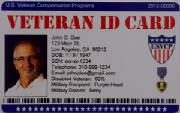|
|
|
|
|
|
Did You Know?
Many military and non-military sources have exposed the realities of military service as it relates to servicemembers being exposed to harmful radiation. Based upon his career experience, and military network, retired Army Colonel, Eugene Powell, gives a chilling account of how many veterans have been exposed, where the exposure happened, and the lethal ramifications of radiation exposure. According to Col. Powell, when you served, it is a greater than average chance you were exposed to dangerous levels of radiation. Download Col. Powell's Article Agent Orange Act May Be Extended Congressman Tim Walz (D-MN) recently introduced the Agent Orange Extension Act of 2015, which extends the original deadline issued by the Agent Orange Act of 1991 to ensure that Vietnam veterans exposed to Agent Orange receive just compensation and care. The Agent Orange Act of 1991 (AOA) established a presumption of service connection for diseases associated with Agent Orange exposure, relieving Vietnam veterans from the burden of providing evidence that their illness was a result of military service. This bill directed the VA to contract with the National Academy of Sciences (NAS) to periodically research and review diseases that might be associated with Agent Orange exposure. The VA is required to add diseases the NAS finds to have a positive association to Agent Orange exposure to the VA’s list of presumptive service connected diseases. Since the enactment of the AOA, the NAS has issued reports that have led to the presumption of service connection for diseases such as Parkinson’s, B-cell leukemia and early onset peripheral neuropathy. Without these studies, thousands of Vietnam era veterans would have gone without the benefits they greatly deserve. The NAS is expected to publish their final report on Agent Orange exposure in March 2016, but the AOA expires on September 30, 2015. If the AOA expires before the final report is issued, the VA would no longer be obligated to review the NAS report or add any new diseases to the presumption of service list, in the process denying thousands of veterans their right to compensation. In order to fulfill the intent of the original law, the Agent Orange Extension Act of 2015 extends AOA by two years, thus allowing for the VA to add any new diseases released in the next NAS report.
Scam Alert Attorney General Leslie Rutledge issued the latest consumer alert to educate veterans, servicemen and women and military families about ways to spot scam artists posing as legitimate veteran advocates. "It is terrible that con artists target these brave men and women who serve and protect our country," said Attorney General Rutledge. "Dishonest advisors can steer veterans in the wrong direction and steal money from them. Some of these 'advisors' go to great lengths to appear trustworthy, even renting a storefront or creating a logo that is similar to a trusted advocate program." Attorney General Rutledge released the following tips for members of the military community looking for assistance:
New Scholarship Veteran Aid is pleased to announce its first scholarship program for advancement in higher education. The Veterans Benefits Scholarship will award three (3) $2,000 scholarships to college students enrolled in an associate's degree, bachelor's degree or graduate level program at an accredited 2-year college or 4-year university during the 2016-2017 academic year. These students will be awarded based on their innovative ideas to improve the world of military veterans benefits. The deadline to enter is December 31, 2016.
Keep in mind, it is always best for a veteran to work with an accredited Veteran Service Officer (VSO) who can explain the complex workings of the VA benefit system. |
|
|
|
|
|
|

